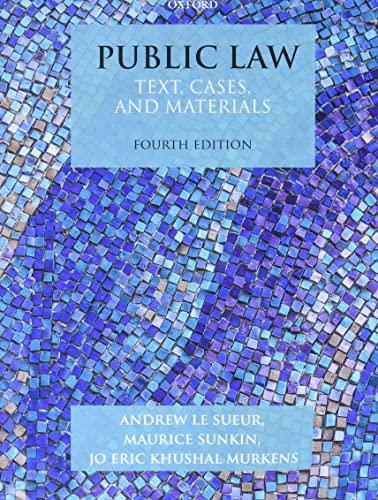Answered step by step
Verified Expert Solution
Question
1 Approved Answer
writea Case Briefing skills on the famous contract law case. Williams v. Walker-Thomas Furniture Co. components of a Brief: 1. Case Title and Date. 2.
writea Case Briefing skills on the famous contract law case. Williams v. Walker-Thomas Furniture Co. components of a Brief:
1. Case Title and Date.
2. Facts. IRAC METHOD?? 3. Issue. 4. Rule. 5. Analyses. 6. Conclusion.
unfortunately, I can upload only one photo of the text and I cannot upload a pdf file. I hope that the first picture will help you to find tis text in the web

Step by Step Solution
There are 3 Steps involved in it
Step: 1

Get Instant Access to Expert-Tailored Solutions
See step-by-step solutions with expert insights and AI powered tools for academic success
Step: 2

Step: 3

Ace Your Homework with AI
Get the answers you need in no time with our AI-driven, step-by-step assistance
Get Started



